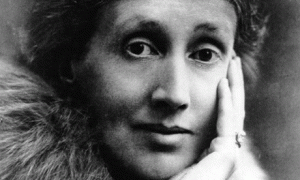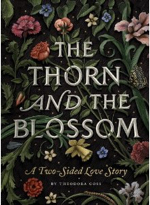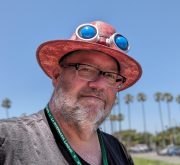Guest Post: Having a Purpose
by Theodora Goss
 When I walk through the bookstore nowadays (the university Barnes and Noble, where these books are on a front table, by the coffee shop), I see so many books on finding your purpose in life. The other day, I stopped and flipped through them, out of curiosity. I didn’t buy one, because I’ve always had a sense of purpose, as long as I can remember. I don’t need to find one, thanks. But it’s not just in books: there are videos out there, programs on the internet, all on finding a sense of purpose.
When I walk through the bookstore nowadays (the university Barnes and Noble, where these books are on a front table, by the coffee shop), I see so many books on finding your purpose in life. The other day, I stopped and flipped through them, out of curiosity. I didn’t buy one, because I’ve always had a sense of purpose, as long as I can remember. I don’t need to find one, thanks. But it’s not just in books: there are videos out there, programs on the internet, all on finding a sense of purpose.
I’m not going to write about finding your purpose in life.
The strangest, for me, was a video on living purposefully. If you don’t have a sense of purpose, said the man in the video, you can still live purposefully, mindfully. Which seems like a good idea anyway, but is not at all the same thing. It struck me as strange because living that way was offered as a substitute for having a sense of purpose, as though we all need a sense of purpose. These books and videos and programs all imply that it’s important to have a purpose in life, that without it you’re missing something.
As someone who’s always had a strong sense of purpose, my response is that it’s not, and that having a purpose can actually be — painful, troublesome, disorienting. Keep in mind that this is based on my experience, so someone else who has a strong sense of purpose could describe it quite differently. But here’s what it looks like in my life.
I’ve always known that I was a writer. Not just that I wanted to write, but that I was, at my core, a writer. As a child, I read and told stories. As a teenager, I read and published poetry in the high school literary magazine. As a college student, I read and published poetry in the college literary magazine. I was an English major because I couldn’t imagine studying anything other than literature. As a law school student, I read when I was supposed to be studying for exams, and I wrote a novel. I started publishing poetry in literary journals. As a corporate lawyer, I kept novels in my office desk and read them during lunch. I plotted my escape, when I could return to graduate school to study English literature. In graduate school, I read and read and read, and I went to two summer writing workshops, using my stipend to pay for them. I wrote short stories and started publishing them in magazines and anthologies. After graduate school, I made the decision to teach writing rather than literature, because I was a writer, to my core.
I experience writing not as something I’ve chosen, but as something that has chosen me. I have work I need to do, and that work is writing, and my life is in that work. My purpose in life is that work. If I’m not writing, I start to feel sick, anxious. I start to feel as though I have failed.
I wrote down some of the ways that having a sense of purpose affects one’s life, or at least my life. When you have a purpose,
1. You prioritize that purpose above other activities. Like sleep.
This is not necessarily a good thing, since sleep is important. Eating is important. Having an actual life, other than the fulfillment of your purpose, is important. But all of that can seem unimportant when I haven’t written for a week, and it’s midnight, and I tell myself that instead of going to sleep, I’m just going to look at that story or part of that story, just that one paragraph. I’m not going to revise anything. But as soon as I open the document, I’m gone, into another country — and the next time I look up, it’s three a.m.
2. You make decisions based on your purpose that can make other people wonder what you’re thinking.
Like, for example, giving up a career as a corporate lawyer because I knew I could never be a corporate lawyer and write.
3. You strive for perfection in your art, which is not in fact achievable.
You try to write perfect sentences, perfect stories, even perfect novels. (Trying to write a perfect novel with perfect sentences is a good way to drive yourself mad.) There is no such thing as perfection in prose. There is perfection in poetry, but the only perfect poem was written by John Keats, and you are probably not John Keats, and your poem is probably not “Ode to Autumn,” so you’re probably out of luck. But you’re going to try anyway.
4. You have both overweening confidence in your abilities, and abject self-doubt.
You are smart enough to know your own talent, but also smart enough to feel your limitations and shortcomings. After all, if you have a sense of purpose, you’ve probably been practicing your art in one way or another since you were a child. And you compare yourself to the best that has come before you. So there are days when you say to yourself, I’m not Virginia Woolf, therefore I am a gnat. You are perpetually disappointed in yourself, and yet perpetually working harder to get better at what you do, because you don’t want to be a gnat.
(Are you surprised that writers have breakdowns, after what I’ve written?)
5. Your purpose can, potentially, fill all of your life. All of it, with meaning and striving and fulfillment.
Which is wonderful, except when you realize that there are other things in life as well, like sleep. And eating. And maybe taking a class in Japanese, but not so you can write about Japan in a story. Because it’s so easy to do things only so you can write about them in a story . . . Having a purpose can fill your entire life, which is why I think there are so many books about having a purpose. Because we all want meaning, fulfillment. But it can also substitute for having a life. It can also lead to overwork, depression, breakdown.
So I wonder if having a purpose is rather like having an illness or addiction, and people who don’t have one, or aren’t sure they have one, should instead simply live their lives, and enjoy them? I mean, look at the lives of the great writers, the great artists. Do you really want lives like those? Unless you can’t help it . . .
This is Virginia Woolf. Whom, as I may have pointed out, I am not:

•••
 Theodora Goss was born in Hungary and spent her childhood in various European countries before her family moved to the United States. Although she grew up on the classics of English literature, her writing has been influenced by an Eastern European literary tradition in which the boundaries between realism and the fantastic are often ambiguous. Her publications include The Thorn and the Blossom: A Two-Sided Love Story (2012); the short story collection In the Forest of Forgetting (2006); Interfictions (2007), a short story anthology coedited with Delia Sherman; and Voices from Fairyland (2008), a poetry anthology with critical essays and a selection of her own poems. She has been a finalist for the Nebula, Crawford, and Mythopoeic Awards, as well as on the Tiptree Award Honor List, and has won the World Fantasy and Rhysling Awards. This post first appeared on her blog.
Theodora Goss was born in Hungary and spent her childhood in various European countries before her family moved to the United States. Although she grew up on the classics of English literature, her writing has been influenced by an Eastern European literary tradition in which the boundaries between realism and the fantastic are often ambiguous. Her publications include The Thorn and the Blossom: A Two-Sided Love Story (2012); the short story collection In the Forest of Forgetting (2006); Interfictions (2007), a short story anthology coedited with Delia Sherman; and Voices from Fairyland (2008), a poetry anthology with critical essays and a selection of her own poems. She has been a finalist for the Nebula, Crawford, and Mythopoeic Awards, as well as on the Tiptree Award Honor List, and has won the World Fantasy and Rhysling Awards. This post first appeared on her blog.


